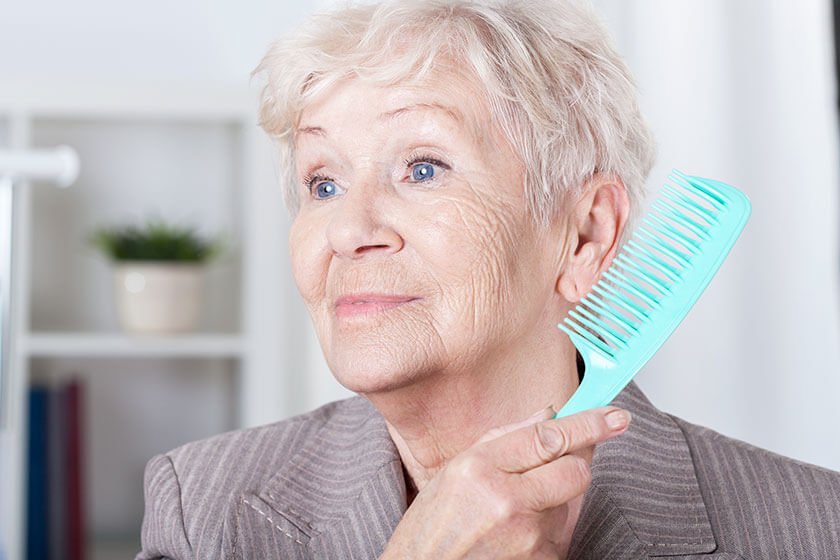You may have realized that as you age, your hair changes too. In order to keep your hair growing healthy and strong, you first need to understand why your hair changes. The main reason is that over time, your hair follicles and hair shaft start to shrink. Your hormones change with age, and the oil glands on your scalp do not replenish as well as they used to. This leads to thinning hair and eventually hair loss because your hair simply does not grow back as quickly as before. Some people experience hair loss from certain rheumatoid arthritis medications. Although this can seem really distressing, fret not! Read on for aging hair care tips you can follow to maintain your crowning glory.
Reduce Hair Stress
The best time to start taking better care of your hair is now. You may not see it, but the things you do to your hair on a daily basis could be adding unnecessary stress to your hair, such as putting your hair up in ponytails that are too tight. This causes strain to your hair follicles, making them even more susceptible to damage. According to the American Academy of Dermatology Association, broken hairs around your forehead are an early sign of hair loss due to pulling hair too tightly. Try to avoid perming and bleaching your hair, which can damage the hair shaft, making your hair weaker and more brittle. If you must color your hair, try to lengthen the duration between each coloring session or treatment. If you use a hair dryer, reduce the heat setting. High heat can damage the hair shaft especially if you aim it close to your hair. All of these factors combined can overstress your hair and cause hair loss.
Give Your Hair Nutrition
Your hair needs nourishment just like you do. Be kind to your hair, and use mild shampoos and conditioners that do not contain strong chemicals. Even though your hair may already be experiencing changes now, having a good diet with proper nutrition can help your hair maintain its luster through the years. Use a good hair conditioner after washing to keep your hair healthy, but remember to squeeze the excess water from your hair so that the conditioner can penetrate the hair shaft more easily.
The Role of Genetics
There are just some things we cannot change, and that is how genetics affect our lives. Although some of the things that affect your hair may be environmental such as exposure to chemicals and damage from the sun, genetics determine how your hair changes over time. There is not much you can do to change hair conditions linked to hereditary factors. However, if you are not satisfied with the way your hair ages naturally, you may consider treatments such as topical therapies, low-level laser light, and oral tablets.
Reverse Existing Hair Damage
Try preventing further hair loss by taking better care of your hair as soon as possible. You can consume more biotin-rich foods and increase B-complex vitamins in your diet. It is important to understand that there are not much over the counter remedies that can help reverse or delay hair loss. Therefore, if you currently have concerns regarding your hair, you can visit the salon regularly to keep your hair well-maintained and healthy.







